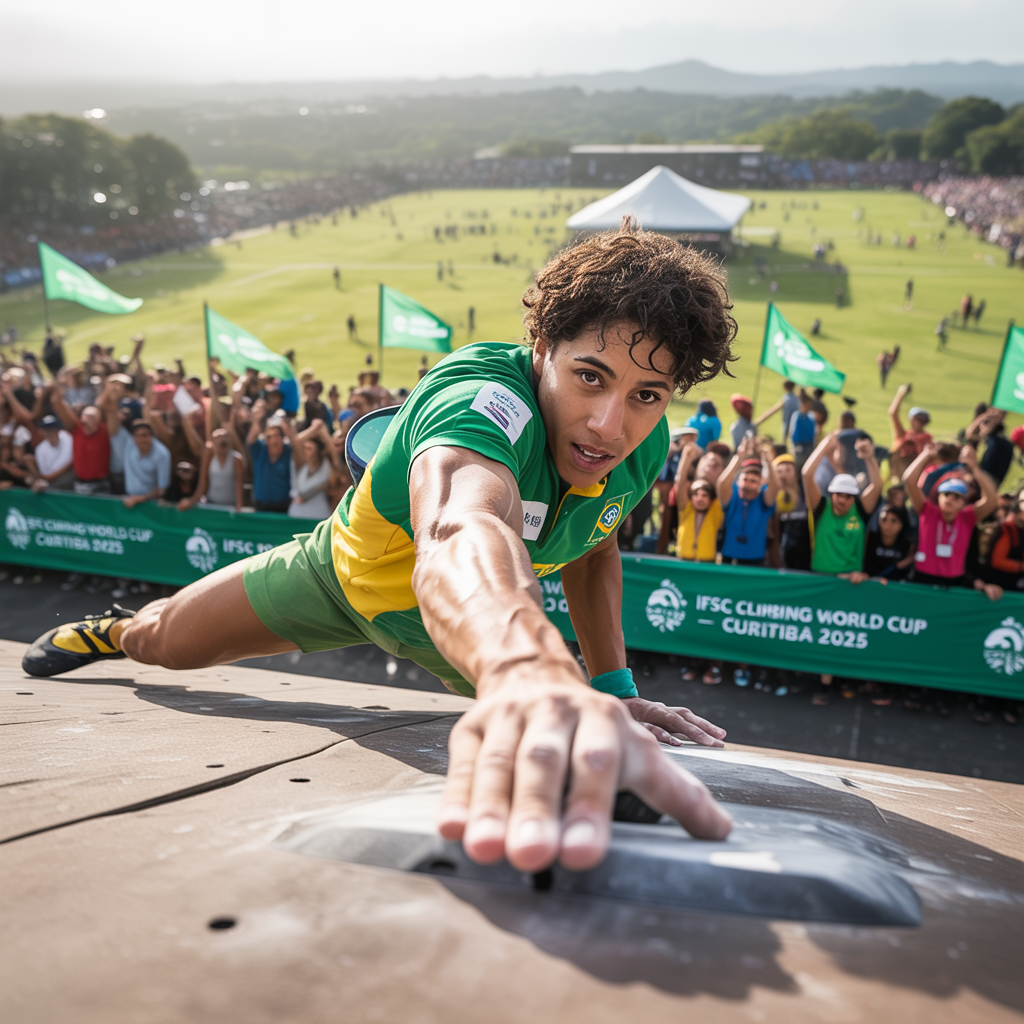For the first time in history, Brazil hosted a stage of the International Federation of Sport Climbing (IFSC) World Cup, marking a significant milestone for both the country and the sport across South America. The event took place between May 16–18, 2025, in Curitiba, Paraná, transforming the Parque Barigui into a dynamic arena for elite climbers from around the globe.
The competition drew over 200 athletes from 30 countries, competing in boulder, lead, and speed climbing formats, with thousands of spectators and millions watching the live streams worldwide.
A Global Event on Brazilian Soil
The decision to bring an IFSC World Cup event to Brazil reflects the country’s growing role in the global climbing community. Over the past decade, Brazil has rapidly developed its indoor climbing infrastructure and nurtured a new generation of competitive climbers.
Marco Scolaris, IFSC President, stated:
“Brazil has shown remarkable growth in climbing. Hosting this World Cup here not only reflects that but also opens new doors for the sport across South America.”
Curitiba was chosen for its combination of natural beauty, urban organization, and climbing culture. The venue, set against the backdrop of lush green landscapes, provided an exceptional experience for athletes and fans alike.
Brazilian Climbers Shine on Home Turf
The home crowd had much to cheer for as Brazilian athletes put on historic performances:
Camila Macedo (Lead)
- Recently qualified for Paris 2024
- Reached her first-ever World Cup semifinal, thrilling the home fans with a powerful lead performance and placing 11th overall
Lucas Menezes (Speed)
- Broke the South American record in speed climbing with a time of 5.02 seconds
- Finished 5th overall, marking Brazil’s best-ever result in the speed category
Julia Alves (Boulder)
- Advanced to the quarterfinals, showcasing innovative beta solutions and technical prowess
Fans erupted with cheers as these athletes pushed boundaries and represented the Brazilian flag with pride.
International Stars Light Up Curitiba
While Brazilian athletes impressed, the event was dominated by international stars:
- Janja Garnbret (Slovenia) claimed gold in bouldering, continuing her reign as the sport’s top female competitor
- Tomoa Narasaki (Japan) delivered a spectacular speed-climbing performance, winning gold and setting a new event record
- Seo Chae-Hyun (South Korea) topped the lead category, with an impressive top-out in the final route
Their presence gave Brazilian fans a chance to witness climbing legends up close and inspired a new generation of climbers.
Impact on Climbing in Brazil
The success of the event is expected to accelerate the growth of climbing in Brazil through:
- Increased investment in public climbing walls and youth development programs
- Broader media exposure — Globo Esporte broadcasted the event nationwide
- Surge in gym memberships and outdoor climbing participation across the country
The Brazilian Climbing and Mountaineering Confederation (CBME) announced that after the World Cup success, it will bid to host future Pan-American Championships and more World Cup stages.
CBME President Pedro Fonseca said:
“This is just the beginning. Brazil is ready to be a climbing hub for all of Latin America.”
A Celebration of Sport and Nature
Beyond the competition, the event celebrated:
- Environmental sustainability, with zero-waste policies and local conservation efforts
- Cultural exchange, with workshops and exhibitions on Brazilian climbing destinations like Pedra da Gávea and Serra do Cipó
- Community outreach, offering free climbing clinics for local youth
Conclusion: Brazil Climbs Into the Spotlight
The IFSC World Cup stage in Curitiba was more than a competition — it was a statement. Brazil has emerged as a new epicenter for climbing in the Americas, offering world-class athletes, passionate fans, and an unparalleled natural environment.
With this momentum, Brazilian climbing is set to ascend even higher on the global stage, with Paris 2024 and beyond in sight.
